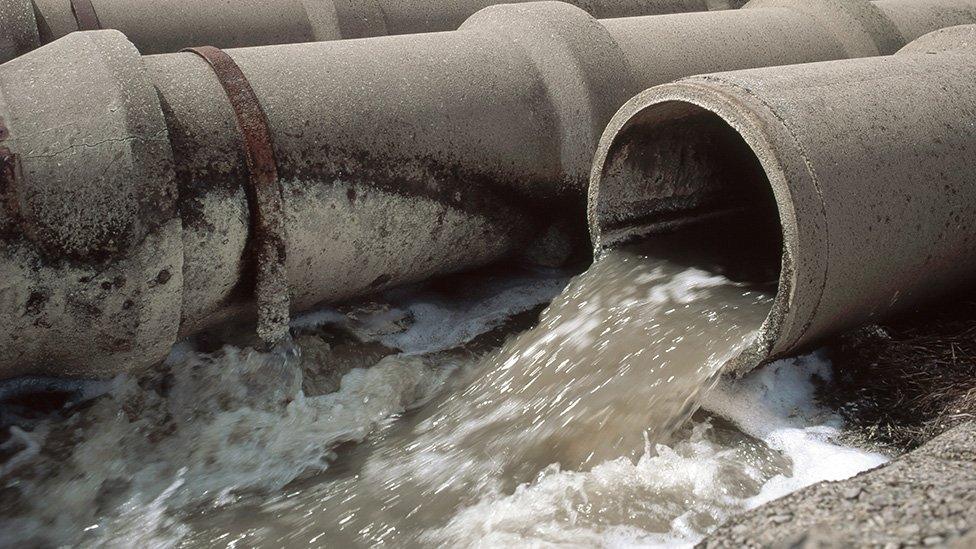River Mole: Campaigners warn of record storm sewage overflows
- Published

Thames Water said it was committed to stopping untreated discharges from being necessary
A Surrey river and its tributaries have had more than 4,500 hours of untreated sewage pumped into it by Thames Water this year, according to campaigners.
River Mole River Watch (RMRW) said February had the "highest recorded duration" of any month it had tested so far.
The campaign group said some sewage works were failing so badly, raw sewage had flooded footpaths.
Thames Water said it was spending £71m on upgrading its network.
RMRW said February figures exceeded the 2,115 hours recorded in January, with the damage mostly coming from nine big sewage treatment plants.
Both Thames Water and RMRW said the pollution was more diluted than normal due to heavy rain.
The campaign group said that despite its expectations, it recorded some of the lowest phosphate levels in the 10 months of testing so far.
However, due to the sheer volume of untreated waste, the campaigners said this would mean the "absolute load" of phosphates would be "much larger during wet months".
'Unacceptable'
A spokesperson for Thames Water said: "Storm overflows are designed to operate automatically when the sewer network is about to be overwhelmed which then releases diluted wastewater into rivers, rather than letting it back up into people's homes.
"We regard any untreated discharges as unacceptable, and we're committed to stopping them from being necessary, with the assistance of our regulators."
The water company said it was spending £34m upgrading Crawley sewage works and an additional £23m improving its site in Burstow. These upgrades are due to complete in 2024.
The spokesperson added: "We've also started a £14m upgrade to Dorking sewage works and we have plans to upgrade our Earlswood, Esher, Holmwood, Horley, Leatherhead and Merstham sites."
Thames Water is the only firm to give live updates to its sewage overflows, and the company said it believed it was "leading the way" with this "transparent" data.
The Local Democracy Reporting Service (LDRS), external said the data was not always accurate and only indicated rather than confirmed discharges.
Verified data is published annually.

Follow BBC South East on Facebook, external, on X, external, and on Instagram, external. Send your story ideas to southeasttoday@bbc.co.uk, external or WhatsApp us on 08081 002250.